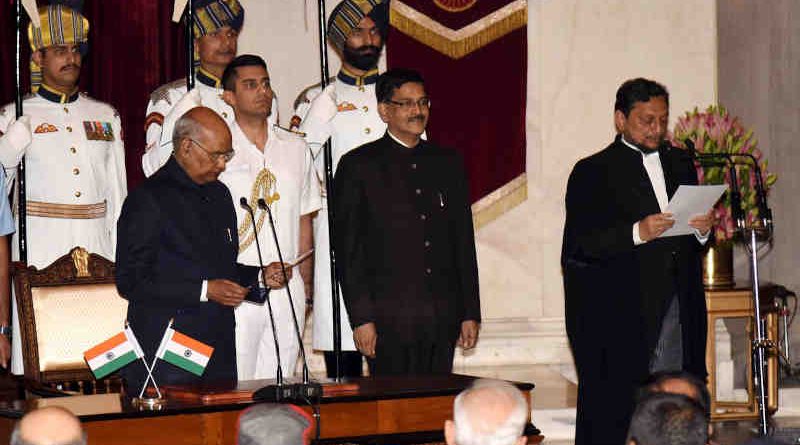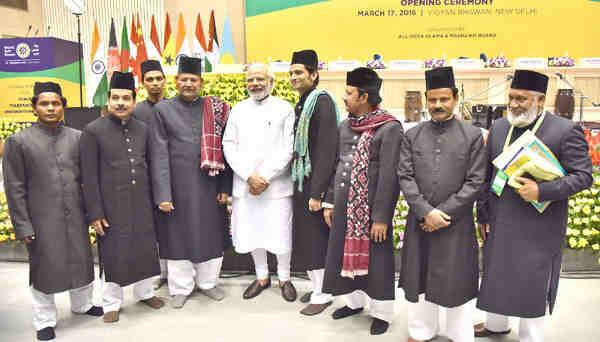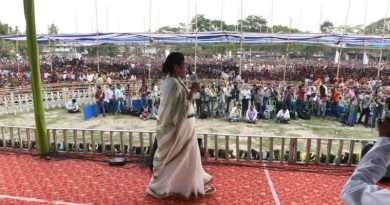Can the New Chief Justice Clean Up the Supreme Court Mess?

While India has become a lawless banana republic, people have lost faith in the Indian judiciary. It is Chief Justice Bobde’s immediate responsibility to take some concrete decisions to restore people’s confidence in the justice system.
By Rakesh Raman
When Justice Sharad Arvind Bobde took charge as the Chief Justice of the Supreme Court of India on November 18, he must be a worried man. Bobde knows that he will not only have to perform his own duties diligently as a judge, but he will also have to work hard to restore the lost reputation of the top court.
Bobde’s predecessors – Ranjan Gogoi and Dipak Misra – who were largely working as government spokespersons – have completely tarnished the image of the court which has been reduced to the level of a party office of Bharatiya Janata Party (BJP) headed by Prime Minister (PM) Narendra Modi.
As judges, both Gogoi and Misra were pronouncing judgments to meet Modi’s expectations. In all autocratic regimes that work under the garb of democratic systems, the rulers silently use courts to impose their own decisions on citizens and suppress all kinds of dissent.
That’s what Modi has been doing by virtually holding Chief Justices Gogoi and Misra to ransom. Throughout his tenure, Gogoi was made to grapple with his own sexual harassment case filed by a woman employee.
And Misra was facing multiple charges from abuse of office to impropriety. In fact, last year 64 Rajya Sabha MPs of different political parties had submitted an impeachment motion against Misra on 5 charges of misconduct.
Obviously, in order to save their reputations and jobs, both these beleaguered judges preferred to succumb under surreptitiously given government diktats instead of protecting the dignity of the court. They often delivered wrong or vague judgments just to please Modi and his government.
Now the onus is entirely on Chief Justice Bobde to save the Supreme Court’s sanctity by bringing some order to the chaos. He should begin by opening the following cases to deliver justice which should be clearly visible to all the stakeholders.
Ayodhya Case
In its 1,045-page judgment delivered on November 9 by a 5-judge constitution bench comprising former Chief Justice Ranjan Gogoi, the court ruled that the entire 2.77 acre disputed land in Ayodhya be handed over to a trust to be formed for the construction of the Ram temple for Hindus. The decision of the court is aimed to please Modi and BJP who have pledged to make India a Hindu Rashtra (a nation only for Hindus where Muslims will not have equal rights).
Obviously, Muslims in India have refused to accept the verdict and decided to file a review petition. The All-India Muslim Personal Law Board (AIMPLB) has said that the Supreme Court has made glaring errors and there are many contradictions in its judgment. Now, it is Bobde’s responsibility to bring the case on the right track. You can click here for case details.
Rafale Case
Although there is sufficient prima facie evidence to start a formal inquiry into the Rafale corruption case in which Modi is the prime accused, the Supreme Court under Gogoi did not order the CBI inquiry.
It is also alleged that India’s Attorney General (AG) K. K. Venugopal had misled the Supreme Court to save Modi in Rafale case. But Gogoi’s court ignored all the facts to dismiss the case.
If Bobde wants to weed out corruption from the country, he must immediately get this case reopened and order the CBI inquiry so that the culprits could be caught and punished. You can click here for case details.
Sanjiv Bhatt Case
Sanjiv Bhatt, a police officer who blamed Modi for Gujarat riots of 2002, has been sentenced to life imprisonment in an unrelated 30-year-old custodial death case.
Shweta, wife of the police officer, claims that it is a fabricated case against her husband who spoke truth to power. She says that her husband is being targeted for a crime he did not commit.
Bhatt, a former Indian Police Service (IPS) officer from Gujarat, had filed an affidavit in the Supreme Court against the then chief minister of Gujarat Narendra Modi (who is now the PM of India), alleging that the riots were committed at Modi’s behest. Nearly 2000 people – mostly Muslims – were killed in the riots. Bobde must deliver justice in this case. You can click here for case details.
Kashmir Case
Currently, Kashmir is facing extreme human rights violations being committed by the Indian security forces, as the Modi government has abrogated Article 370 which gave special privileges to the people of Jammu & Kashmir (J&K).
Expecting backlash from the Kashmiris, the government had imposed curfew in Kashmir and millions of people (most of them are Muslims) have been locked in their homes since August 4, a day before revoking Article 370 for J&K. Also, the Modi government has arrested all top political leaders of Kashmir and it is not allowing press to work freely.
The Modi government’s annexation of Kashmir is a unilateral, authoritarian move, which is expected to make Kashmir a veritable inferno because most people of Kashmir do not want to live under the Indian rule where Modi is the ruler. As the Supreme Court has failed miserably to protect the fundamental rights of the people of Kashmir, Bobde must take immediate decision to save the people of Kashmir. You can click here for case details.
Judge Loya Case
Many judges in India cannot dare to work against Modi or his party colleagues such as Amit Shah. Those who dared are either removed from their positions or they simply die in mysterious circumstances.
As the courts and top judges are completely controlled by the government, last year a few judges had protested openly against the shady working of the Supreme Court of India. They were particularly concerned about the mysterious death of CBI court judge B. H. Loya, who was handling the Sohrabuddin Shah encounter case in which BJP president Amit Shah was the main accused.
A Supreme Court order stated that no further investigation is needed in the death of judge Loya. It is largely believed that the Modi government had influenced the court to get Amit Shah off the hook.
When courts were reluctant (or scared) to take up the Loya case, a 15-party opposition delegation had submitted a letter to the President of India Ram Nath Kovind, seeking an investigation into judge Loya’s death. But as it was expected, nothing happened because Kovind is also believed to be Modi’s own man. Bobde must get this case reopened and order a court-monitored investigation. You can click here for case details.
Gujarat Riots Case
The Supreme Court had decided to hold a hearing in the case of Gujarat riots that took place in 2002 when Modi was the chief minister in the state. The court had decided to hold the hearing after the 2019 Lok Sabha election and accepted the deferment request of Zakia Jafri whose husband Ehsan Jafri was killed in the riots.
In her petition, Jafri has challenged the clean chit given by the Special Investigating Team (SIT) to Modi in connection with the 2002 riots in Gujarat. The SIT had exonerated Modi of all charges in the Gujarat pogrom against Muslims.
While about 2,000 Muslims were killed in the Gujarat riots, there were incidents of rape, robbery, and widespread destruction of property affecting Muslims. It was alleged that the killings were executed at the behest of Modi.
Although Indian courts had almost exonerated Modi in this case, most Muslims in India still believe that Modi was responsible for Gujarat massacre. Now, Bobde must reopen the case filed by Jafri. You can click here for case details.
If Bobde could not immediately begin the prosecution in all these and other such cases, he does not have any right to stay in the Supreme Court which is supposed to decide the fate of millions of people.
While India has become a politically unstable and lawless banana republic, people have lost faith in the Indian judiciary which is perceived to be totally inefficient and corrupt. Therefore, it is the immediate responsibility of Bobde to take some concrete decisions to restore people’s confidence in the justice system.
This article will also be published in the Legal Directions newsletter that covers Indian and international legal affairs.
By Rakesh Raman, who is a national award-winning journalist and social activist. He is the founder of a humanitarian organization RMN Foundation which is working in diverse areas to help the disadvantaged and distressed people in the society. He also creates and publishes a number of digital publications on different subjects.





